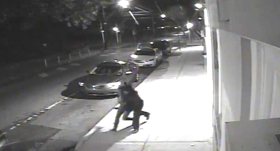
(CINCINNATI) — A federal appeals court on Thursday upheld anti-gay marriage laws in four states, breaking ranks with other courts that have considered the issue and setting up the prospect of Supreme Court review.
The 6th U.S. Circuit Court of Appeals panel that heard arguments on gay marriage bans or restrictions in Ohio, Michigan, Kentucky and Tennessee on Aug. 6 split 2-1, with Circuit Judge Jeffrey Sutton writing the majority opinion. The ruling creates a divide among federal appeals courts, increasing the likelihood the U.S. Supreme Court will now take up the issue.
The ruling concluded that states have the right to set rules for marriage and that such change as expanding a definition of marriage that dates “back to the earliest days of human history” is better done through political processes.
“When the courts do not let the people resolve new social issues like this one, they perpetuate the idea that the heroes in these change events are judges and lawyers,” Sutton wrote, adding that it’s better to have change “in which the people, gay and straight alike, become the heroes of their own stories by meeting each other not as adversaries in a court system but as fellow citizens seeking to resolve a new social issue in a fair-minded way.”
The president of pro-gay marriage group Freedom to Marry, Evan Wolfson, blasted the ruling as “on the wrong side of history.”
He called it “completely out of step with the Supreme Court’s clear signal last month, out of step with the constitutional command as recognized by nearly every state and federal court in the past year, and out of step with the majority of the American people.”
“This anomalous ruling won’t stand the test of time or appeal,” he said in a statement.
In October, the Supreme Court surprisingly turned away appeals from five states seeking to uphold their marriage bans, even with the gay couples who won in the lower courts joining with the states to ask for high court review.
Justice Ruth Bader Ginsburg explained in the weeks following the court’s denial of those appeals that the lack of a split in the appellate courts made Supreme Court review of the issue unnecessary.
Thursday’s ruling out of Cincinnati changes that dynamic, and the big question now is whether an appeal can be ready for the justices in time for consideration this term. Generally, that means the court would have to decide by mid-January whether to hear the case in time for a decision in June. Otherwise, the case would be pushed back to the following term and probably not decided until June 2016.
The ruling followed more than 20 court victories for supporters of same-sex marriage since the Supreme Court struck down part of the federal Defense of Marriage Act last year. A federal judge in Louisiana recently upheld that state’s ban, but four U.S. appeals courts ruled against state bans.
The issue appears likely to return to the Supreme Court so the nation’s highest court can settle whether states can ban gay marriage or gay and lesbian couples have a fundamental right to marry under the U.S. Constitution. Thirty-two states recently asked the Supreme Court to settle the issue once and for all.
When the high court on Oct. 6 unexpectedly turned away appeals from five states seeking to prohibit gay and lesbian unions, its order effectively made gay marriage legal in 30 states. The San Francisco-based 9th Circuit Court of Appeals the next day overturned same-sex marriage bans in Idaho and Nevada, the fourth federal appeals court to rule against state bans.
Ginsburg told a Minnesota audience the 6th Circuit’s then-pending ruling would likely influence the high court’s timing, adding “some urgency” if it allowed same-sex marriage bans to stand.
Before the 9th’s Oct. 7 ruling, three other appellate courts, the 10th Circuit in Denver, the 4th Circuit in Richmond, Virginia, and the 7th Circuit in Chicago, overturned statewide gay marriage bans in Wisconsin, Indiana, Oklahoma, Utah and Virginia over the summer, ruling that they were unconstitutional.
During the Aug. 6 arguments, it was apparent that Sutton would be the deciding vote, with the two other judges clearly on opposite sides of the debate.
Sutton vigorously questioned each side’s attorneys, though he repeatedly expressed deep skepticism that the courts were the best place to legalize gay marriage, saying that the way to win Americans’ hearts and minds is to wait until they’re ready to vote for it.
“I would have thought the best way to get respect and dignity is through the democratic process,” Sutton, a George W. Bush nominee, said at the time. “Nothing happens as quickly as we’d like it.”
Michigan’s and Kentucky’s cases stem from rulings striking down each state’s gay marriage bans. Ohio’s two cases deal only with the state’s recognition of out-of-state gay marriages, while Tennessee’s is narrowly focused on the rights of three same-sex couples.
Plaintiffs include a Cincinnati man who wants his late husband listed as married on his death certificate so they can be buried next to each other in a family-only plot and a Tennessee couple who both want to be listed on their newborn daughter’s birth certificate.

